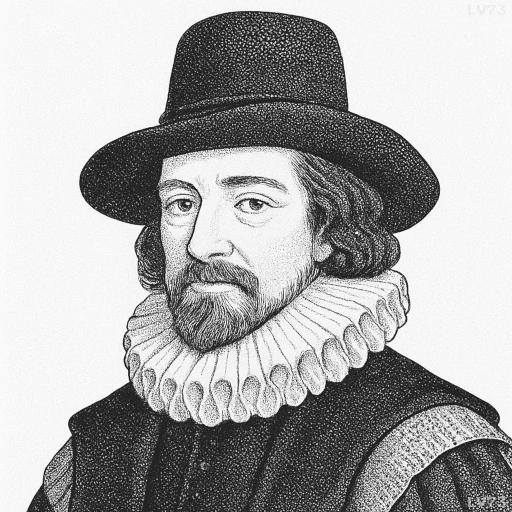“Nothing doth more hurt in a state than that cunning men pass for wise.”

- January 22, 1561 – April 9, 1626
- Born in England
- Philosopher, theologian, jurist, politician, aristocrat
table of contents
Quote
“Nothing doth more hurt in a state than that cunning men pass for wise.”
Explanation
In this quote, Francis Bacon warns against the danger of deception and the misuse of intelligence within a society or government. He argues that cunning men—those who are clever in deceit or manipulation—should not be mistaken for truly wise individuals. Cunning involves using tricks or dishonest tactics to gain an advantage, while wisdom requires moral judgment, integrity, and sound reasoning. Bacon suggests that when such cunning individuals are mistaken for wise leaders, it can cause great harm to the state or society, because their actions are driven by personal gain and manipulation, rather than the greater good and reasoned decisions.
Bacon’s perspective reflects the growing concerns of the Renaissance about the role of leadership and the moral character of those in power. During this time, there was an increasing focus on the idea that true leadership and governance should be based on virtue, knowledge, and ethics. Bacon’s warning underscores the dangers of power in the hands of those who lack genuine wisdom and who might instead use their intelligence for self-serving purposes. The quote speaks to the importance of distinguishing between true wisdom and cunning, particularly in the political sphere.
In modern times, this quote still resonates in discussions about leadership, ethics, and integrity in both politics and business. Cunning individuals who may appear intelligent or competent can sometimes rise to power or influence, but their lack of true wisdom often leads to manipulation and unethical practices. The quote serves as a reminder of the importance of integrity and ethical decision-making in leadership positions, as false wisdom can be damaging to both individuals and society. Bacon’s insight encourages vigilance in recognizing the difference between true wisdom and deceptive cleverness, as the latter can undermine the trust and stability of any system.
Would you like to share your impressions or related stories about this quote in the comments section?


